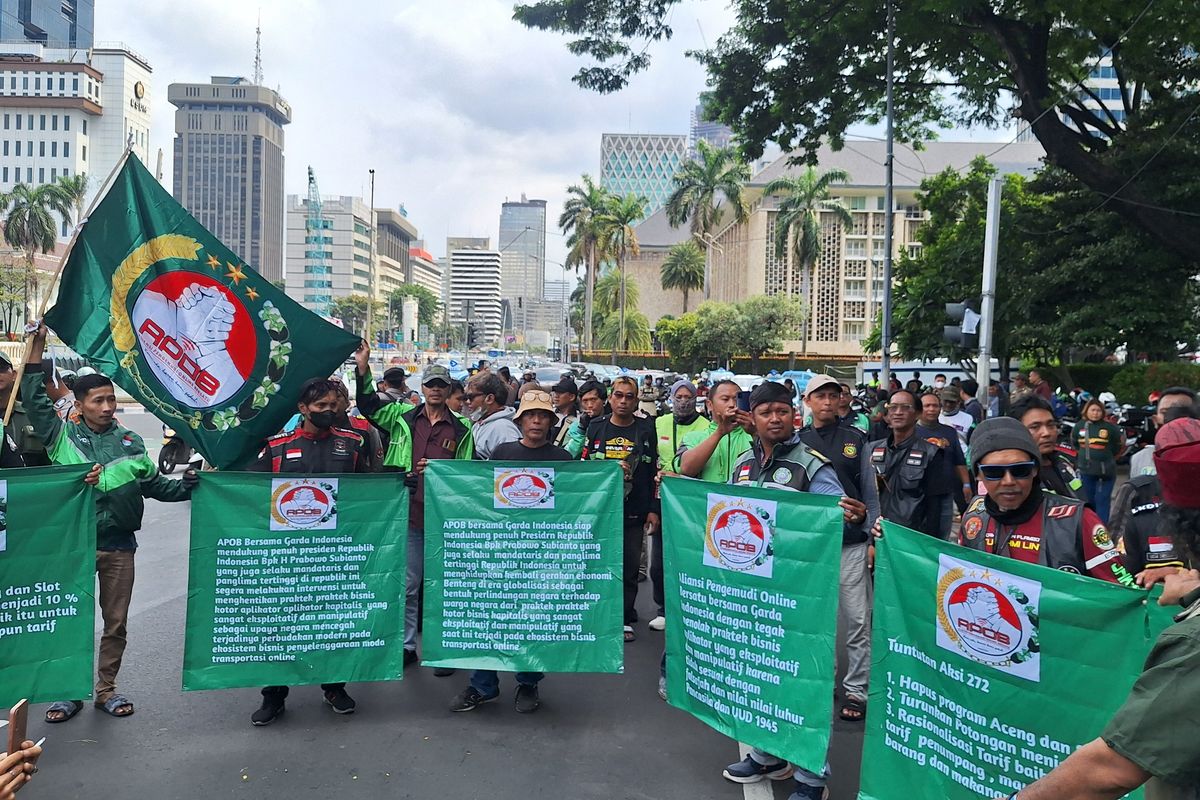On May 20, 2025, Indonesia is set to witness a significant protest as approximately 500,000 ride-hailing drivers plan to go offline for 24 hours. This coordinated action aims to highlight the drivers' demands for better working conditions, fairer commission structures, and legal recognition within the country's labor laws.
Background of the Protest
The protest, dubbed "Aksi Akbar 205," is organized by several driver associations, including Garda Indonesia, APOB, GOGRABBER, TEKAB, SAKOI, and GEPPAK. These groups represent both two-wheel and four-wheel ride-hailing drivers across the nation. The decision to protest stems from ongoing grievances regarding high commission fees imposed by ride-hailing platforms and the lack of legal protections for drivers.
Raden Igun Wicaksono, Chairman of Garda Indonesia, stated that the protest is a response to the government's inaction in addressing the drivers' concerns. He emphasized that the drivers are not seeking to disrupt public services but to draw attention to their plight and push for meaningful reforms.
Key Demands of the Drivers
The protesting drivers have outlined several key demands:
- Reduction of Commission Fees: Drivers are calling for a decrease in the commission percentages taken by ride-hailing platforms, arguing that the current rates significantly reduce their earnings.
- Legal Recognition: The drivers seek formal recognition under Indonesian labor laws, which would grant them access to benefits such as health insurance, pensions, and job security.
- Transparent Fare Structures: There is a demand for clearer and more transparent fare calculations to ensure drivers are fairly compensated for their services.
- Protection Against Unilateral Termination: Drivers are asking for safeguards against arbitrary deactivation from the platforms, which currently can occur without due process.
- Inclusion in Policy Discussions: The drivers want a seat at the table in policy-making processes that affect their livelihoods, ensuring their voices are heard in regulatory decisions.
Impact on Services and Public Response
The planned protest is expected to cause significant disruptions in ride-hailing services across major Indonesian cities, including Jakarta, Surabaya, Bandung, and Medan. Commuters who rely on these services for daily transportation may need to seek alternative modes of travel during the 24-hour period.
Public response to the protest has been mixed. While some sympathize with the drivers' demands for fair treatment and better working conditions, others express concern over the inconvenience caused by the service disruption. Nonetheless, the protest has sparked a broader conversation about the rights of gig economy workers in Indonesia.
Government and Platform Reactions
In response to the planned protest, the Indonesian Ministry of Manpower has reiterated that ride-hailing drivers are already recognized under existing labor laws. However, driver associations argue that this recognition lacks the necessary enforcement and fails to provide tangible benefits.
Ride-hailing platforms like Gojek and Grab have yet to issue official statements regarding the protest. In previous instances, these companies have emphasized their commitment to supporting driver partners and have highlighted various initiatives aimed at improving driver welfare. However, driver associations contend that these measures are insufficient and fail to address the core issues at hand.
Broader Implications for the Gig Economy
The upcoming protest underscores the growing tensions within the gig economy, where workers often lack traditional employment protections. As ride-hailing services become increasingly integral to urban transportation, the rights and welfare of drivers have come under greater scrutiny.
Experts suggest that the protest could serve as a catalyst for broader labor reforms in Indonesia, prompting policymakers to reevaluate the legal frameworks governing gig economy workers. Such reforms could set precedents for other sectors and influence labor policies across Southeast Asia.
Conclusion
The nationwide protest planned by Indonesian ride-hailing drivers on May 20 represents a significant moment in the ongoing discourse surrounding gig economy labor rights. As drivers seek to assert their demands for fair treatment and legal recognition, the outcome of this protest may have lasting implications for the future of ride-hailing services and labor policies in Indonesia.
Read More






 Friday, 27-02-26
Friday, 27-02-26







